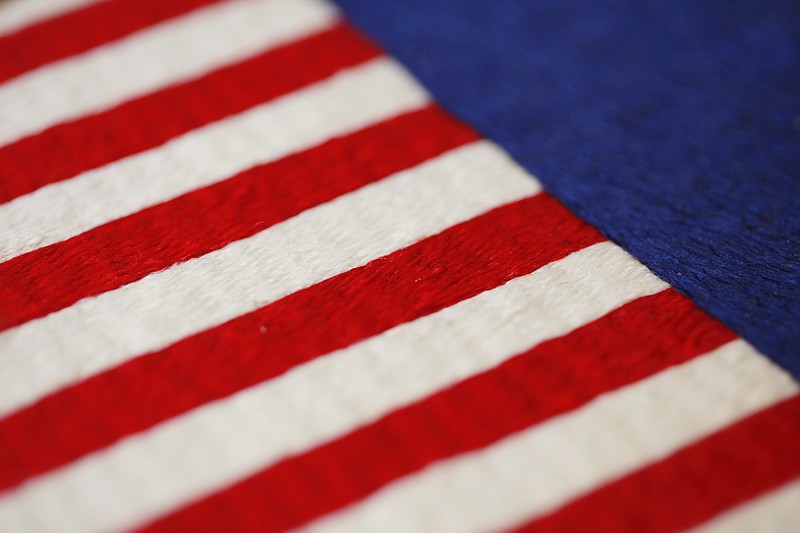Nike has canceled the release of a sneaker that featured the 13-star "Betsy Ross flag," igniting the latest flare-up in the nation's culture wars and causing the governor of Arizona to order the withdrawal of funding for a planned multimillion-dollar Nike factory in that state.
The decision was reportedly prompted by Colin Kaepernick, the former NFL quarterback and social-justice activist, who had privately criticized the design to Nike, according to The Wall Street Journal. The athletic-wear company did not say why it had pulled the sneaker.
"Nike has chosen not to release the Air Max 1 Quick Strike Fourth of July as it featured an old version of the American flag," Sandra Carreon-John, a spokeswoman for Nike, said in a statement Tuesday.
U.S. Sen. Marsha Blackburn, R-Tenn., denounced Kaepernick, the face of Nike's "Just Do It" campaign last year, for criticizing the use of the flag on the shoes.
"Well, who would ever have thought that a spoiled brat football player would have a problem with an American flag that was first made by one of our founding mothers in 1776?" Blackburn asked. "Sounds like someone needs a little flag education on what that symbol of freedom actually stands for to millions of people, not only in America, but also around the globe."
Gov. Doug Ducey, R-Ariz., announced on Twitter that he would oppose the company's plans by pulling back state support for a Nike plant that would have employed more than 500 people. Nike had announced Monday that it planned to open the factory in Goodyear, Arizona.
"I am embarrassed for Nike," Ducey tweeted. "I've ordered the Arizona Commerce Authority to withdraw all financial incentive dollars under their discretion that the State was providing for the company to locate here."
The governor added: "Arizona's economy is doing just fine without Nike. We don't need to suck up to companies that consciously denigrate our nation's history."
The heels of the Air Max shoe feature the flag, in which 13 white stars are arranged in a circle over the traditional field of blue. Betsy Ross, a Philadelphia seamstress, is widely credited with creating the flag, although most scholars dispute that story as legend.
To many, the flag is merely a relic of America's past. But it has, at least in recent years, appeared as a symbol of the slavery era in association with racist ideologies. According to a 2013 investigation by The Albany Herald in Georgia, at least some local Ku Klux Klan units were required to use either that flag or the Confederate flag at ritualistic meetings.
Prominent conservatives argued that Nike's cancellation of the shoe was unpatriotic.
"Nike only wants to sell sneakers to people who hate the American flag," Sen. Ted Cruz, R-Texas, wrote on Twitter.
Kaepernick became a face of the social-justice movement in 2016 after he began kneeling during the national anthem to protest racial inequality and killings by police. Last year, Nike made Kaepernick the face of its "Just Do It" campaign celebrating the company's 30th anniversary.
